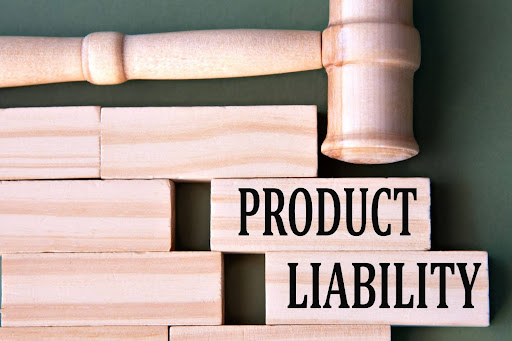
Sometimes, products can contribute to personal injury, such as a product that is poorly designed or has a general manufacturing defect. A reasonable company might issue a product recall on defective merchandise. When this happens, the injured parties (plaintiffs) may choose to bring a case against a company in a product liability lawsuit. Learn about laws governing product liability in Indiana and how a dangerous products lawyer from Lerner and Rowe can help.
What Is Product Liability?
Product liability is the responsibility of companies to manufacture and sell safe products to consumers. Legally, there are three ways that a product can be deemed unsafe:
- A manufacturing defect happens when several items, like a batch, are produced with a defect.
- A design defect happens when a product is unsafe because of its design.
- When a product has unsafe conditions and a company fails to warn, this is a marketing defect. An example of failing to warn includes not putting a caution label or an age requirement tag on a product.
In Indiana, the plaintiff does not have to prove negligence in a personal injury case involving product liability. The focus in a case is always on the defect. A manufacturer is liable if the product left their control with the defect.
Most states, especially Indiana, extend product liability for cases involving marketing. The Indiana Deceptive Consumer Sales Act protects consumers if they are injured due to misrepresentation of the safety of the product.
Who Is Responsible in a Product Liability Case?
Virtually anyone in a supply chain can be held accountable for product liability. Sometimes, a manufacturer is outside of the plaintiff’s jurisdiction. Retailers and distributors can be liable for a product defect. Sometimes, multiple parties are named in a personal injury case involving a product defect.
Griffin v. Menard, Inc. is an example of this. In this case, a shopper was injured by a falling sink at a home improvement outlet. Menard, Inc. extended the product liability to the manufacturer and distributor of the sink, which was boxed incorrectly. This is how any party in the supply chain can be sued for product liability injuries.
How Long Does a Plaintiff Have to File a Case?
In Indiana, a plaintiff has a minimal amount of time from the date of injury to bring a case. If a plaintiff is injured, they can consider a settlement before they file a case. They must file the case within a set number of years of receiving the product. This protects the manufacturer from frivolous lawsuits. This is called the statute of repose. The timeline for repose is longer than ten years if the manufacturer’s warranty is longer than 10 years.
What Reduces Liability in a Product Defect Case?
Not everyone can bring a product liability case. There are a couple of factors that can be used as a defense in a frivolous case. For example:
- If a customer knew of a defect and used the product anyway, this could mitigate their case.
- If a customer incorrectly uses a product, the manufacturer might not be held liable.
- If a customer modifies a product in a way not intended, the plaintiff might also not have a case.
Sometimes, comparative negligence can play a role in product liability cases. This typically involves the conditions described above. Let’s say that a hairdryer had a defect that resulted in electrocution. If the plaintiff were using the hairdryer near water, comparative liability might mitigate their claim, as the misuse of the hairdryer might have contributed to the accident. The comparative liability argument will reduce the size of the claim for the plaintiff.
How Much Are Damage Payouts in a Product Liability Case?
The average payout from a product liability case tends to be higher than other personal injury cases. The median product liability case payout is $567,000. The majority of payouts in cases tend to be higher than $250,000. Some factors go into the higher damages in product liability cases:
- Product defects can cause serious personal injuries.
- Some product defect cases might result in punitive damages if the manufacturer or defendant committed negligence or knew about the defect.
- Product defects tend to result in property damage.
- Juries may hold companies more liable for an injury than a person.
- Punitive damages may be more frequent and common in product liability cases.
Product liability cases could potentially result in more non-economic damages as well, such as pain and suffering caused by emotional trauma and the development of PTSD from their injury. Lastly, the higher payout might hinge on the fact that most states have a strict liability law in a product defect case.
Why Should You Consult with a Personal Injury Lawyer at Lerner and Rowe?
A skilled Merrillville personal injury lawyer is a must in product liability cases. The defendant in a product liability lawsuit will likely have a lawyer, if not a team of lawyers. Another issue in personal injury cases involving product liability is the likelihood of the litigant making a mistake.
In the Menard, Inc. case detailed above, the case was decided in the defendant’s favor because the plaintiff had difficulty establishing negligence on Menards’ part. A personal injury lawyer can help a plaintiff establish strict liability in a product defect case. Additionally, personal injury claims tend to experience more success in the court systems with the assistance of a lawyer.
Lerner and Rowe’s team is available 24/7 to schedule your free consultation with a Merrillville product liability lawyer. You can reach out to us by phone at (844) 977-1900 and online through encrypted online form or LiveChat.



